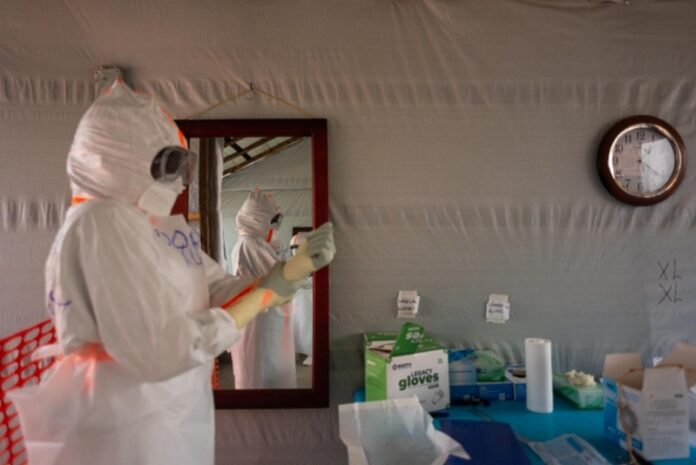The Democratic Republic of Congo has declared a new outbreak of the deadly Ebola virus, with 28 suspected cases and 15 deaths reported in Kasai Province.
The outbreak affects the Bulape and Mweka health zones, where health officials are investigating cases with symptoms like fever, vomiting, and hemorrhage.
In a press briefing today, Thursday, September 4, via Facebook, authorities said tests conducted at the National Institute of Biomedical Research in Kinshasa confirmed the Zaire strain of the Ebola virus as the cause. Health authorities are working to contain the outbreak and prevent further spread.
The World Health Organisation has deployed a rapid response team to Kasai Province to combat the latest Ebola outbreak.
The team, including experts in epidemiology and infection control, will strengthen disease surveillance, treatment, and prevention measures.
WHO is also delivering essential supplies, including personal protective equipment and medical gear, to the affected area.
Despite the challenges of reaching the remote region, WHO Regional Director for Africa, Dr Mohamed Janabi, said the organisation is working to halt the spread of the virus and protect local communities.
“Banking on the country’s long-standing expertise in controlling viral disease outbreaks, we’re working closely with the health authorities to quickly scale up key response measures to end the outbreak as soon as possible.”
The case numbers are likely to increase as the virus continues to spread. According to WHO, response teams are working to identify and care for infected people, while the country is mobilising its stockpile of treatments and vaccines.
The Ervebo Ebola vaccine, effective against this strain, will be deployed to Kasai to protect frontline health workers and contacts.
With 15 outbreaks since 1976, the DRC has experience battling the disease, and officials are hopeful for a swift response, as seen in the recent Equateur province outbreak in 2022, which was controlled in under three months.
Health experts say ebola is a serious and often deadly disease that affects humans. It spreads from animals to humans or from person to person through bodily fluids like blood, sweat, or saliva of someone who’s sick or has died from Ebola.
They advise the public to be careful and avoid contact with infected people or animals to preventing the spread of Ebola.



